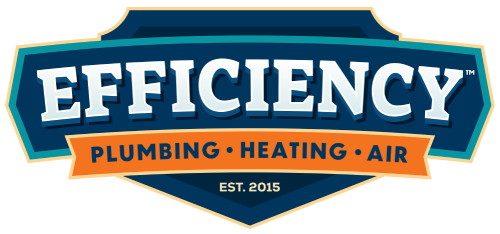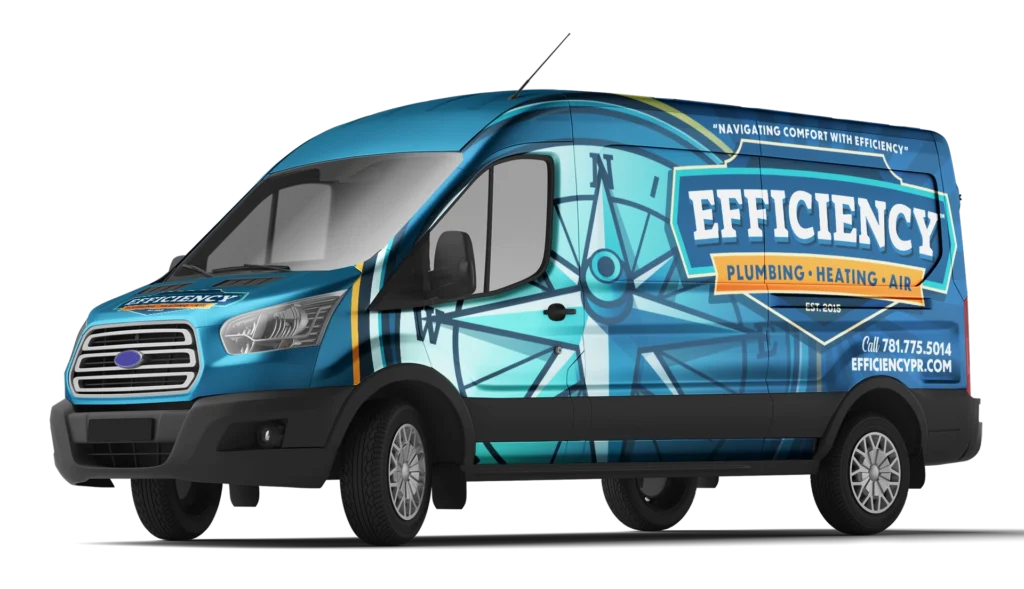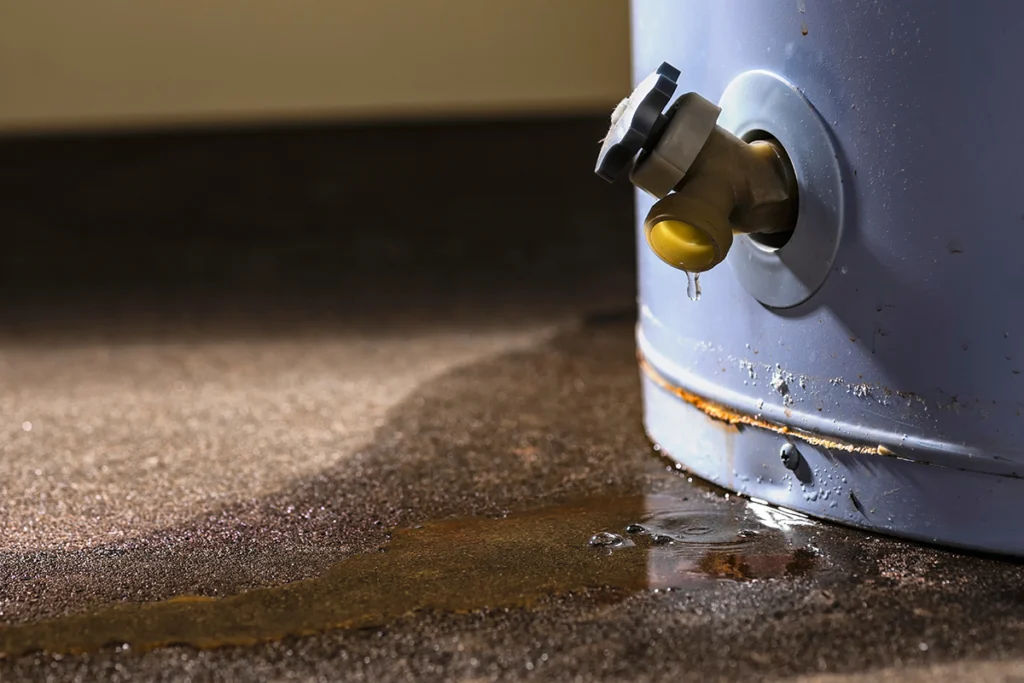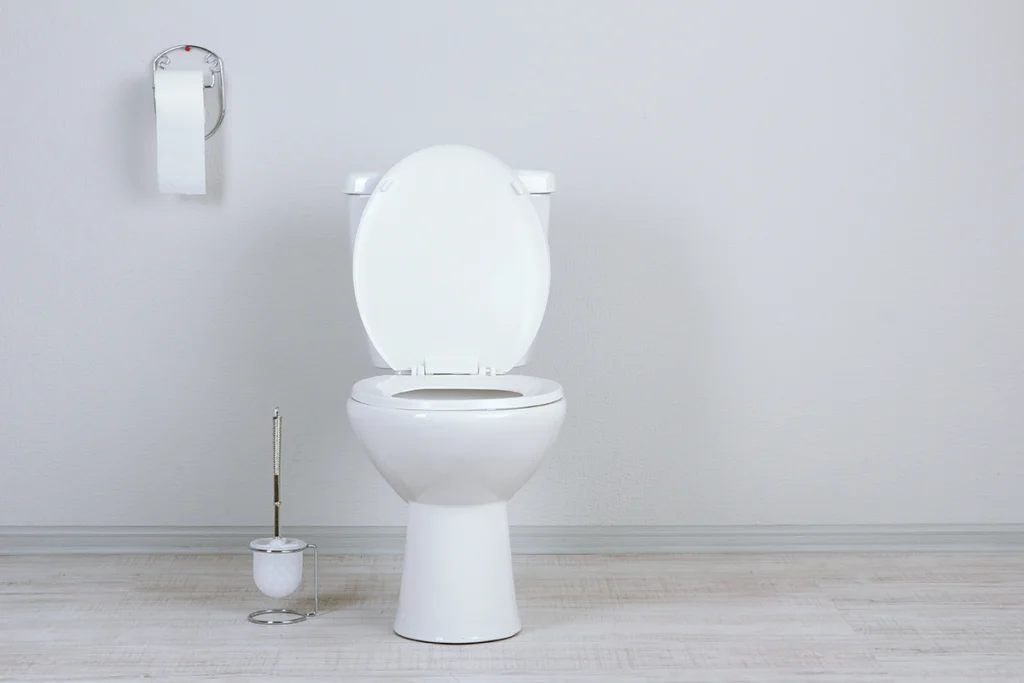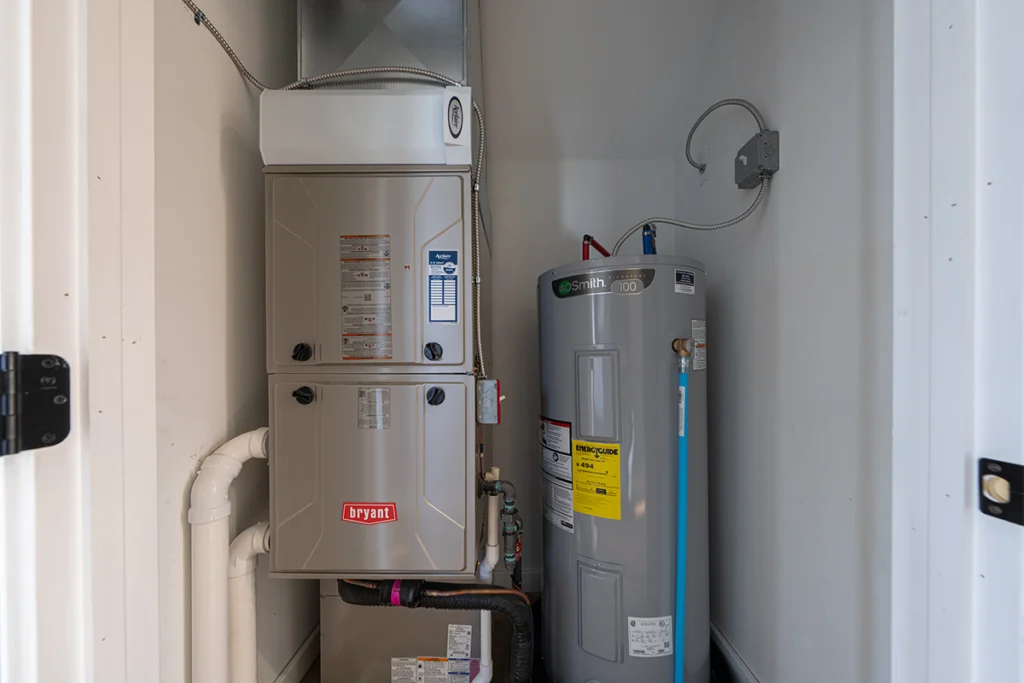From slow sinks to unexpected backups, many drain problems begin with small issues that were easy to prevent. In a state like Massachusetts, where freezing temps and old plumbing are common, regular drain maintenance is important. At Efficiency Plumbing, Heating & Air, in Hanover, MA, we’ve helped homeowners protect their plumbing by staying ahead of the little things that lead to major repairs.
Cold Weather and Your Drains
When temperatures drop, your plumbing is impacted. Drains might not freeze the same way supply lines do, but they still react to the cold. Grease and debris that might move easily in summer can solidify faster in winter, which slows down flow and causes build-up. Thick stews, butter, and cooking oils cling to the inside of pipes and harden faster when the drainpipe sits near cold basement walls.
Homes with older plumbing run into this issue more often. Cast iron and clay pipes don’t hold heat like modern materials, so blockages can sneak up on you in winter. That sluggish drain you ignore in January might clog completely by February. It helps to run hot water after meals and avoid dumping food scraps, even if they’re small. A short rinse might help in the moment, but long-term care requires more than water alone.
Tree Roots and Yard Drainage
Tree roots can find tiny cracks or loose joints and grow toward the water. You don’t need a break in the pipe for roots to cause problems. Even intact lines can draw root systems close enough to squeeze the pipe from the outside or crowd nearby soil until drainage slows down.
Massachusetts yards often have a mix of clay and loamy soil, which holds water after rain or melting snow. That keeps the ground damp, and roots stay active. If your drains gurgle after it rains, or if you notice soft spots in the yard, there might be more happening underground than you think. Spotting this problem early doesn’t require digging up your yard. A professional drain inspection with a camera can show where the roots are pushing or slipping inside. If you catch it before it grows thicker, root clearing can clear the line without full excavation.
Why You Should Skip Store-Bought Cleaners
Chemical drain cleaners do more harm than good. The chemical reaction that occurs creates heat. If your pipes are old, that heat can cause damage, especially to PVC or corroded metal pipes. In multi-story homes, these cleaners often settle in low points and never reach the blockage.
Even when they seem to work, the effect is short-lived. Soap scum and food particles cling to pipe walls. Chemical cleaners eat away at the center of the clog, but they don’t clear the edges, which means it forms again fast. If the clog involves a solid object or buildup from hard water, chemicals will be unable to break it apart. Clearing the line mechanically or flushing it with high-pressure water achieves better results without weakening your plumbing.
Preventing Bathroom Drain Trouble
Bathroom drains face different problems than kitchen ones. Soap, shampoo, hair, and skin cells combine into a sticky mess that clogs sinks and showers slowly. If you’ve ever noticed water puddling around your feet during a shower, there’s likely a build-up beneath the surface. In cold months, this slows even more as the residue thickens inside cold pipes. Brushing hair near the sink or rinsing razors in the shower adds small pieces that stick inside the drain.
To prevent buildup, try to keep as much solid debris out of the drain as possible. Drain covers with fine mesh help, and so does running hot water after shaving or washing your hair. If the clog’s already there, plungers work better than most people think. For deeper backups, a handheld drain snake might clear it without needing professional help. If you find yourself needing to snake the same drain regularly, though, that usually points to a larger issue.
Managing Kitchen Sink Build-Up
Kitchens are home to fats, food scraps, coffee grounds, and dish soap. Even if you rinse dishes well, tiny bits of food slip through. Grease is especially tricky. It might look like it washed away, but inside the pipes, it sticks to the walls and builds layer by layer. Eventually, that narrows the pipe enough that even water has trouble passing through. If your sink makes gurgling noises or smells sour, you’re probably dealing with early signs of build-up.
The best thing you can do is stop grease before it hits the drain. Pour it into a can or jar instead of rinsing it down. Use strainers on both sides of the sink and empty them after each wash. Baking soda and vinegar help break down light residue if you flush the line with boiling water afterward. If the smell comes back quickly or water drains unevenly, the line might already need a deeper cleaning.
Your Home’s Vent System
Drain systems rely on more than just the pipe that carries water. They also need proper venting to move air and let wastewater flow. If your plumbing vent is blocked or clogged, your drains might gurgle, smell strange, or flush slowly. You might notice one fixture acting up when another is used. For example, flushing the toilet could cause the bathroom sink to gurgle or push air back through the water.
Most homes have vent pipes that run through the roof. Leaves, bird nests, and snow can clog these openings. If air can’t escape through the vent, it tries to pull through your traps, which causes smells to rise or water to sit in the wrong places. Clearing these vents usually requires going onto the roof, so it’s not a DIY job for most homeowners. Knowing that your drain issues might start with airflow, not blockage, helps you decide when it’s time to call for help.
What Happens During a Professional Cleaning
When a plumber handles your drains, it’s not just about pushing clogs out of the way. A professional cleaning starts with a camera inspection to see what’s going on inside. This helps locate buildup, root intrusion, or damaged sections that need more attention. For stubborn clogs or long pipes, hydro jetting is used to clear everything from grease to mineral scale. It’s strong enough to restore full flow without damaging the pipe when used correctly.
If you’ve never had your drains cleaned, the first service often reveals more than one issue. Some homes have older plumbing materials or sections that sag, both of which collect debris. Once those areas get cleaned, you can keep them clear with regular flushing or by changing how you use the fixtures.
Schedule a Home Pipe Inspection Today
Taking care of your drains doesn’t require fancy tools or hours of your time. A little effort here and there can spare you from major plumbing headaches. If you’ve been noticing weird smells, gurgling sounds, or water that won’t drain like it used to, it’s probably time for a closer look.
Efficiency Plumbing, Heating & Air also offers camera inspections, drain cleaning, and sewer line repair for homeowners who want to avoid surprising backups and water damage. Schedule a quick check-up with Efficiency Plumbing, Heating & Air to catch problems early and keep your Hanover plumbing in great shape.

